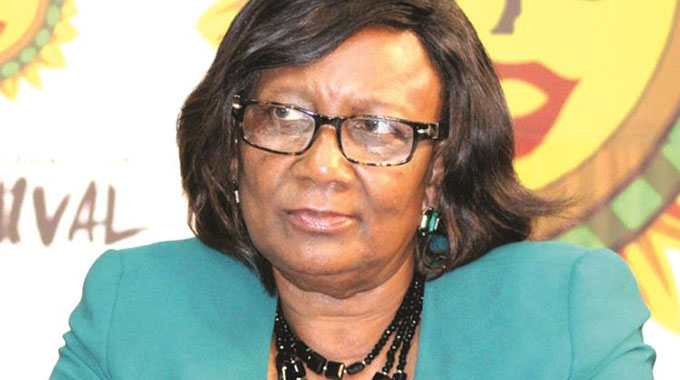Africa must weave it’s way to create own billionaires

Ruth Butaumocho African Tapestry
World leaders gathered for the 74th Ordinary Session of the United Nations General Assembly (UNGA74) in September last year to discuss various topical issues across the globe.
Running under the theme; “Galvanising multilateral efforts for poverty eradication, quality education, climate action and inclusion,” the message that came out loud and clear was that the world needed to rally behind addressing the challenges of climate change and high levels of poverty.
In his welcoming remarks at the opening session of UNGA, Secretary-General António Guterres conceded that the globe was under siege from challenges that needed urgent attention for the world to move forward.
“Peace and security, poverty eradication, zero hunger, quality education, climate action and inclusion are all central to the sustainable development agenda,” he noted.
The message was palatable and resonated well with most states that are already experiencing both the subtle and stark reality of climate change, creating unprecedented challenges for millions of people already burdened by poverty.
Barely four months after the grand global conference, which many leaders now regard as a “mere talk show”, Oxfam has released disturbing statistics on global economic disparities that show that 22 of the world’s richest men now have more wealth than all the women in Africa.
According to Oxfam, the very top of the economic pyramid saw the tripling of trillions of dollars of wealth in the hands of a small group of people, predominantly men.
It further notes that their wealth is already extreme, and the global broken economy concentrates more wealth in their hands, than anywhere else.
Suffice to say of that number, the majority of them will be among 120 global billionaires with a net value of US$500 billion attending the World Economic Forum in Davos to “discuss” global, regional, and industry agendas”.
It is undoubtedly clear that the ordinary majority would not lose sleep over the Davos attendance list.
Their major worry would probably be how they managed to earn such billions at a time the global population is under blistering conditions such as shrinking economies and the adverse effects of climate change.
Such gains are sure to add fuel to the already heated debate about widening wealth and income inequality, mostly for women, who carry the burden of households and yet still live on less than a dollar a day in most nations across the world.
The mere fact that what these billionaires have in their bank accounts will not trickle into many bank account to reduce poverty, is what probably should keep the Statesmen awake about the plight and the future of their citizenry.
And the statistics of people who live on less than one dollar a day are shocking, to say the least.
According to the Brookings Institution, one in three Africans — 422 million people — live below the global poverty datum line.
They represent more than 70 percent of the world’s poorest people.
The figures probably explain why the United Nations is now working on a highly ambitious new goal of eradicating extreme poverty by 2030.
Sadly, the irony of life is the fact that Africa has the highest number of poor people does not mean that it is ill-resourced to cater for its people, but it has been the biggest recipient of ill-conceived so-called panaceas to end poverty.
Corruption is also chewing off the biggest piece of the cherry.
At global level, scholars argue that funding and a raft of targeted policies to raise incomes and productivity, doubling international aid, and improving on democracy are among initiatives that the nations would need to employ to end poverty, without necessarily sending a begging bowl to the 120 billionaires of the world.
It then becomes problematic to implement wholesale policies, using the same template to different nations which are not in any way homogeneous.
Doubtless, the circumstances of individual countries matter a great deal in terms of what works, and there can never be a homogeneous solution to eradicate extreme poverty.
As we step in the new decade, it is important to employ home grown solutions, ably supported by political will and holistic implementation of existing policies to ensure long-term results.
We take note that Government has already started implementing measures to ensure food security and a projected economic growth of three percent in terms of the GDP, for this year.
Of course, the nation should be clear that what Finance and Economic Development Minister Mthuli Ncube projected are only short-term solutions that are expected to take the nation to its next meal, and are not anywhere near reducing the levels of poverty at national level.
It is now very clear for everyone to see that only long-term solutions can deliver Zimbabwe from its economic ills, which are largely structural in nature.
Local economists say it is time to work on fundamentals needed to sustain our local currency, which is still in its infancy, increase production, productivity, employment and formalisation of everything that has been informal.
Sounds simple isn’t?
In theory, yes, but in practice, what the economists are advocating will not turn around the economy, without both Government and other stakeholders’ concerted efforts in addressing issues around good governance and corruption.
President Mnangagwa’s commitment towards zero tolerance to corruption should form the basis of good governance to create a conducive environment under which production, productivity and formalisation can flourish.
Corruption is considered a strong constraint on growth, development and economic performance as rent-seeking, increase of transaction costs and uncertainty, inefficient investments, and misallocation of production factors impede on proper transactions.
Recent allegations levelled against fired Environment, Tourism and Hospitality Industry Minister Prisca Mupfumira and other high-profile Government officials are a clear testimony of the level of corruption in Zimbabwe, which the Government needs to weed out to create a conducive business environment and economic growth.
The fact that the Zimbabwe Anti-Corruption Commission (ZACC) has over 600 dockets with at least 100 having been fully investigated, 74 of them involving high-profile figures, is telling of the vice the country needs to rid itself of, if it is to reduce high levels of poverty and groom its own billionaires.








Comments